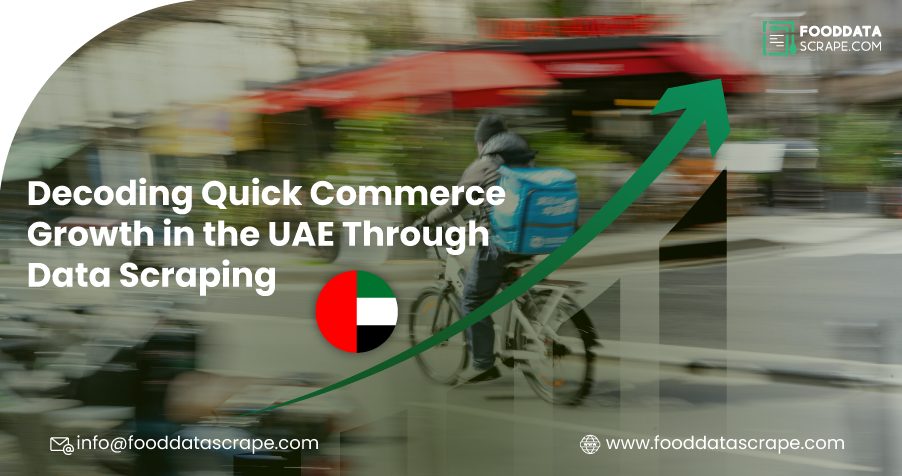Introduction
The quick commerce industry is growing globally, and no country is exempt from this change. This also comprises the United Arab Emirates, a region known for its visionary technology adoption and high disposable income. Against this backdrop, the rise of instant grocery delivery services has come into the limelight. This blog outlines how quickly commerce is booming in the UAE, especially discussing how data scraping is a game-changer tool for businesses and analysts who aim to decode the surge.
Data scraping plays a massive role in market dynamics, from tracking the UAE's quick commerce growth to developing price-tracking dashboards. So, let's explore its insights and what businesses can learn from it.
What is Quick Commerce?
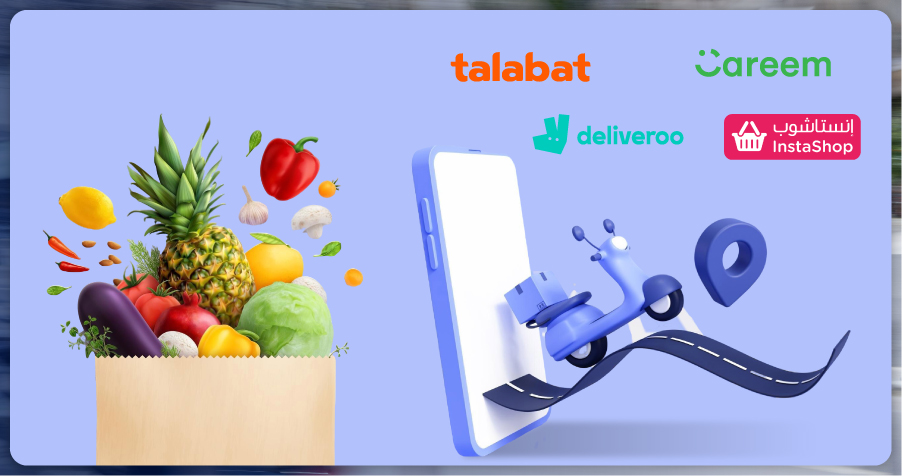
Quick commerce, or q-commerce, refers to hyper-fast delivery services that deliver essential products, often within 10 to 30 minutes, unlike traditional e-commerce, which relies on convenience, small orders, and an ultrafast supply chain network.
Q-commerce services, such as Careem Now, InstaShop, Talabat, and Deliveroo, have become very popular in the UAE. These services cater to a growing population of tech-savvy customers who demand groceries, pharmacy products, and everyday essentials delivered instantly.
The Role of Data Scraping in UAE Quick Commerce Growth
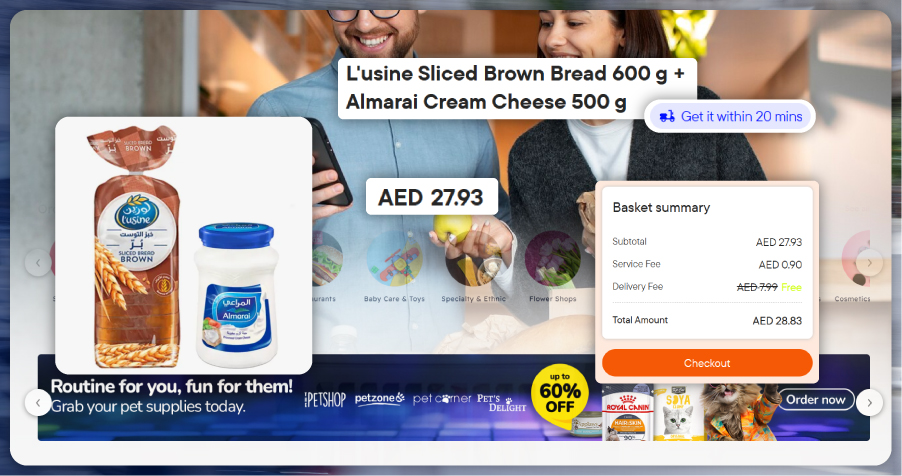
Businesses and analysts require data scraping to track UAE quick commerce growth as a primary activity to understand the dynamics in the UAE quick commerce market. Web scraping can be described as the extraction of data from web pages; thus, companies can gain knowledge on actionable variables such as prices, delivery, product availability, and consumer behaviors.
For instance, by web scraping grocery delivery data, firms can examine trends and optimize their price strategy. Furthermore, the Grocery Delivery Scraping API Services allow the automation of gathering real-time data, which is fundamental in the fast-paced world of q-commerce.
Why is Data Scraping Essential for Quick Commerce?
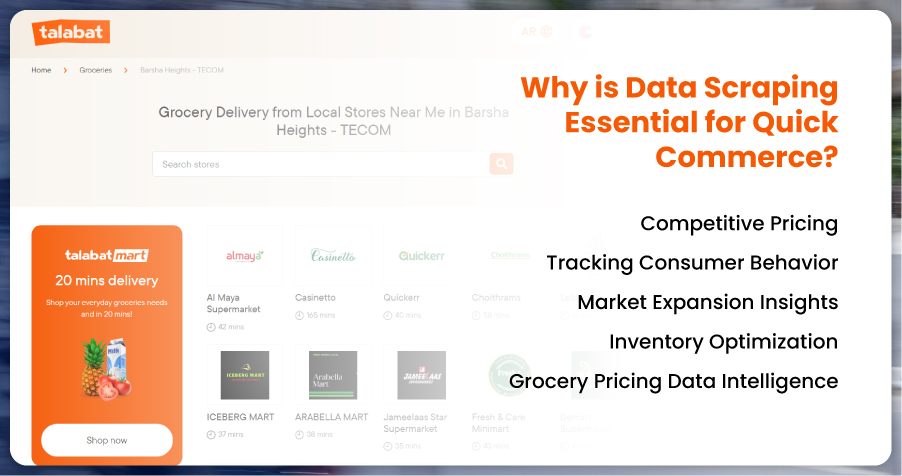
- Competitive Pricing: The quick commerce industry is highly competitive, with platforms vying to offer the best deals and prices. Scraping grocery delivery data on the web allows businesses to monitor competitors' pricing strategies in real time. A grocery price dashboard built using this data can provide instant insights into market trends, enabling companies to adjust their pricing models dynamically.
- Tracking Consumer Behavior: Through data scraping for quick commerce trends in UAE, businesses can identify popular products, peak ordering times, and customer preferences. These insights help platforms improve product offerings and tailor marketing campaigns to specific customer segments.
- Market Expansion Insights: As quick commerce grows, platforms explore new cities and regions. Extracting quick commerce data from the UAE market helps companies identify high-demand areas and optimize delivery routes.
- Inventory Optimization: Businesses can use web scraping quick commerce data to forecast demand and maintain optimal inventory levels by analyzing competitor platforms. This minimizes waste while ensuring product availability.
- Grocery Pricing Data Intelligence: Using advanced data scraping for grocery pricing data intelligence , companies can develop a grocery pricing dashboard to track price fluctuations across regions. This ensures pricing strategies align with both consumer expectations and market conditions.
Transform your Business Strategy with Quick Commerce Data Scraping with Food Data Scrape!
Applications of Data Scraping in the UAE Quick Commerce Market
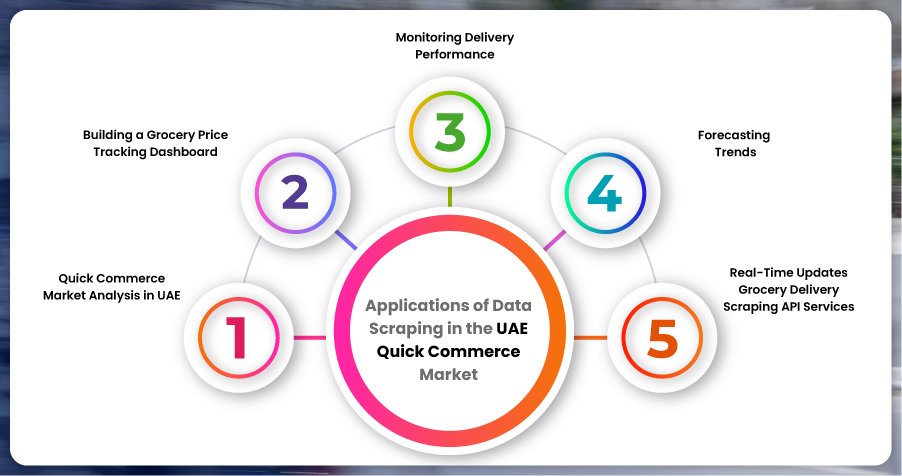
Here are some key applications of data scraping in the UAE quick commerce landscape:
- Quick Commerce Market Analysis in UAE: Businesses can conduct comprehensive market analyses by scraping data from popular quick commerce platforms. This includes tracking delivery times, catalog offerings, and consumer reviews to benchmark against competitors.
- Building a Grocery Price Tracking Dashboard: A grocery price tracking dashboard is invaluable for businesses and consumers. Companies can use scraped data to showcase live pricing comparisons for popular items across platforms like InstaShop, Carrefour, and Talabat.
- Monitoring Delivery Performance: Delivery speed is a cornerstone of quick commerce. Through web scraping quick commerce data, businesses can monitor competitors' average delivery times and identify areas for improvement in their operations.
- Forecasting Trends: Historical data extracted through data scraping for quick commerce trends in the UAE can help predict emerging trends, such as seasonal demand for specific products or new market segments to target.
- Real-Time Updates Grocery Delivery Scraping API Services allow businesses to scrape data in real-time, providing instant updates on pricing, product availability, and delivery times. This ensures platforms stay competitive in the dynamic, quick commerce environment.
Data Scraping Techniques for UAE Quick Commerce Analysis
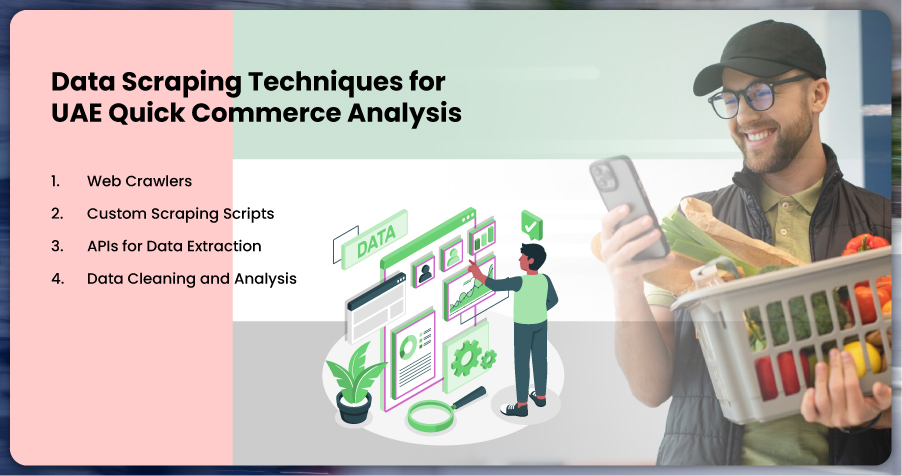
Data scraping employs a range of techniques and tools to gather market intelligence:
- Web Crawlers: Automated bots crawl quick commerce websites, extracting data such as product catalogs, prices, and delivery details.
- Custom Scraping Scripts: Tailored scripts enable businesses to scrape specific data points from competitor platforms, such as consumer reviews or promotional offers.
- APIs for Data Extraction: Many quick commerce platforms offer APIs allowing businesses to access structured data directly. For instance, grocery delivery scraping API services simplify the extraction of real-time data.
- Data Cleaning and Analysis: The raw data is cleaned and structured for analysis after scraping. Businesses can use this to create visual tools like grocery price dashboards or identify key consumer behavior trends.
Challenges in Data Scraping for Quick Commerce
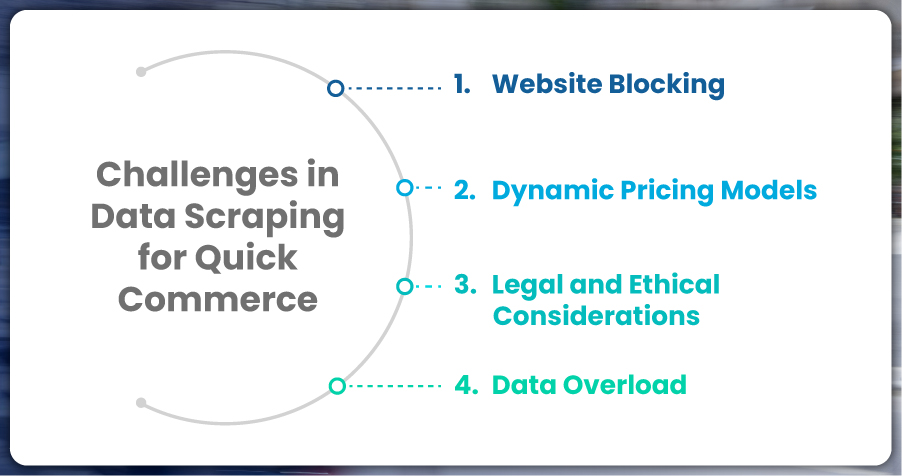
While data scraping offers immense benefits, it also comes with challenges:
- Website Blocking: Many quick commerce platforms implement anti-scraping measures to prevent unauthorized data extraction.
- Dynamic Pricing Models: Platforms often use dynamic pricing, which means prices fluctuate based on demand, time, or location. Keeping up with these changes requires real-time data scraping.
- Legal and Ethical Considerations: Businesses must ensure compliance with data privacy laws and regulations while conducting scraping activities.
- Data Overload: The sheer volume of data available can be overwhelming. Advanced tools and techniques are required to filter relevant information for actionable insights.
By leveraging these technologies, businesses can gain timely and actionable insights into the UK's Q-commerce landscape.
Future of Data Scraping in UAE Quick Commerce
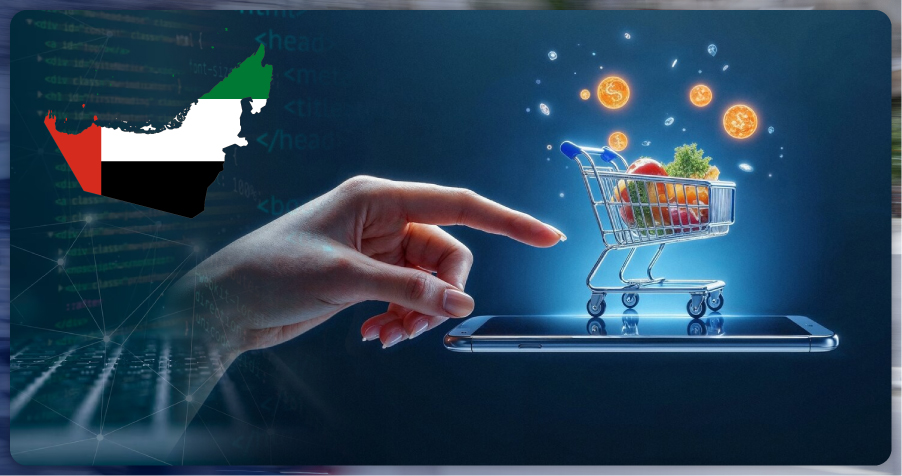
The UAE quick commerce market is set to grow further, with emerging technologies like AI, machine learning, and IoT reshaping the industry. Web scraping grocery delivery data will continue to be crucial for businesses adapting to these changes.
For instance, predictive models based on scraped data can forecast market trends, helping companies optimize their strategies. Additionally, integrating grocery pricing data intelligence into AI-powered dashboards can provide unparalleled insights, ensuring a competitive edge.
Building a Grocery Price Dashboard with Scraped Data
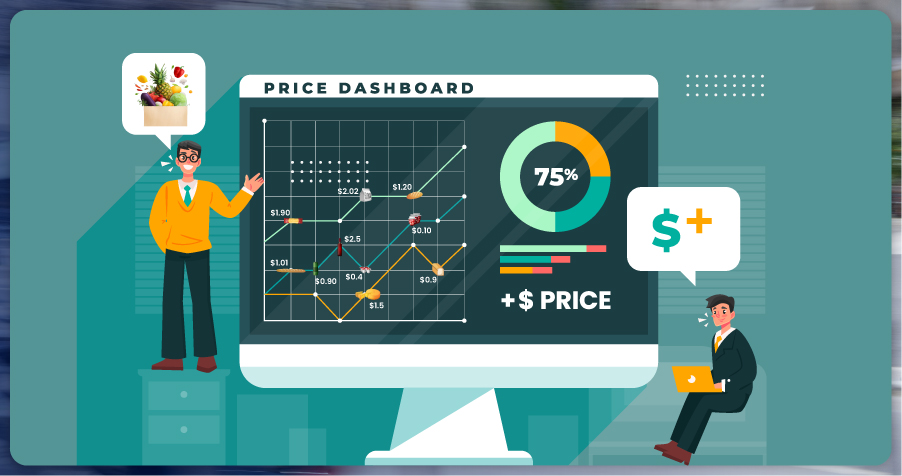
Creating a grocery price tracking dashboard involves several steps:
- Data Collection: Use web scraping tools or Grocery Delivery Scraping API Services to extract pricing data from multiple platforms.
- Data Structuring: Organize the data into a structured format, such as a database or spreadsheet, for easy access and analysis.
- Visualization Tools: Employ tools like Tableau, Power BI, or custom dashboards to display pricing trends, comparisons, and historical data.
- Regular Updates: Automate data scraping processes to ensure the dashboard reflects real-time updates.
- Actionable Insights: Use the dashboard to identify pricing anomalies, promotional patterns, or emerging market trends.
Conclusion
The rapid growth of quick commerce in the UAE presents unparalleled business opportunities. By leveraging data scraping to track UAE's quick commerce growth, companies can gain deeper insights into the market, refine their strategies, and maintain a competitive edge.
Data scraping applications are vast and transformative, from creating grocery price tracking dashboards to optimizing delivery performance. As technology evolves, so will data extraction capabilities, ensuring businesses remain at the forefront of this booming industry.
Data is king in the fast-paced world of q-commerce, and scraping is the key to unlocking its full potential. Whether you're a startup, an established player, or an analyst, integrating data scraping for quick commerce trends in UAE into your strategy is no longer optional—it's essential.
Are you in need of high-class scraping services? Food Data Scrape should be your first point of call. We are undoubtedly the best in Food Data Aggregator and Mobile Grocery App Scraping service and we render impeccable data insights and analytics for strategic decision-making. With a legacy of excellence as our backbone, we help companies become data-driven, fueling their development. Please take advantage of our tailored solutions that will add value to your business. Contact us today to unlock the value of your data.






















































































